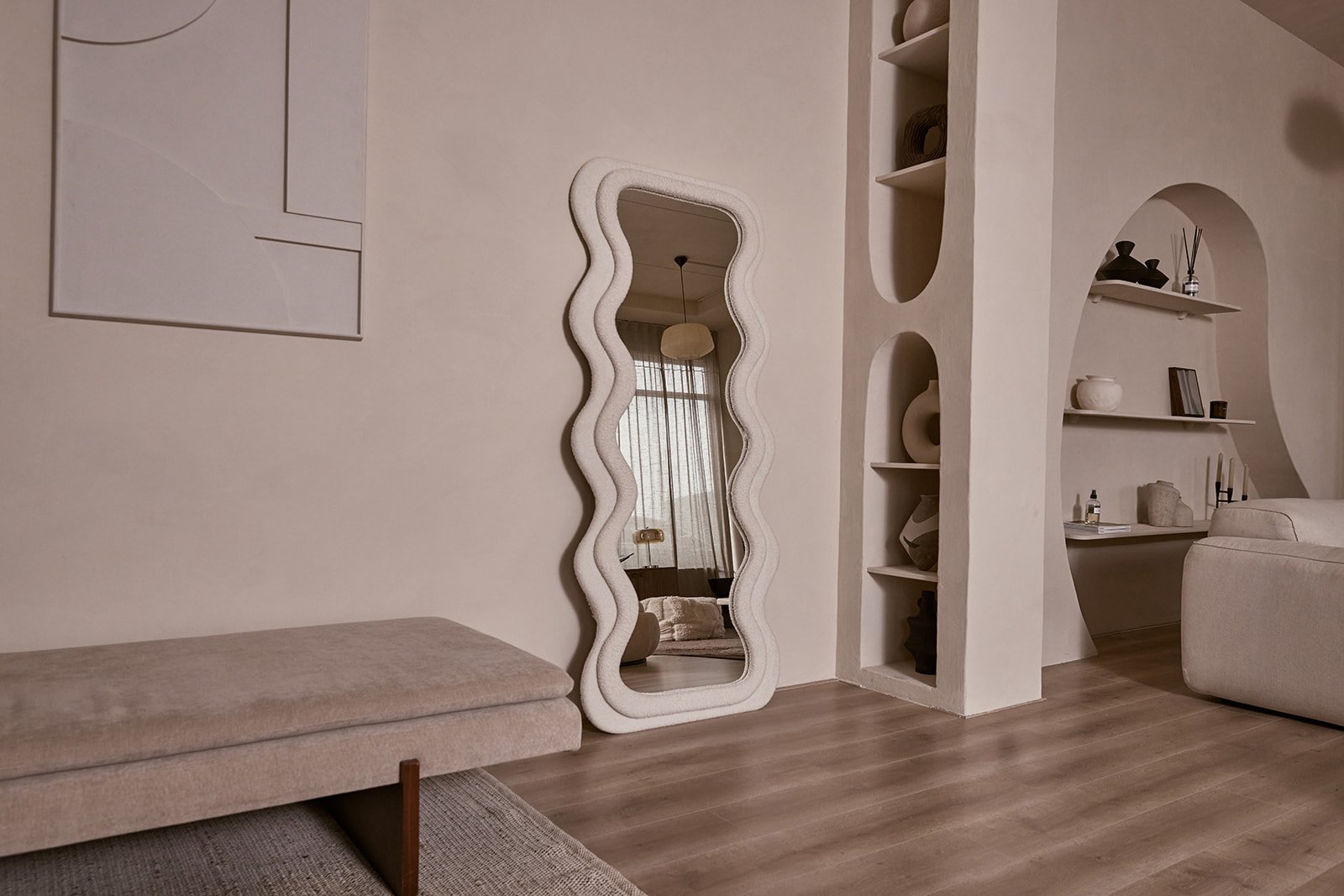Exclusive mirror-design at discounter store Kwantum: allowed?
Wavy Mirror Ted © The 18 Studio, Studio Måndag
Kwantum, a Dutch retail chain specializing in home furnishings and decorations known for its affordable prices, introduced a new, furry mirror.
The ‘Teddy Wave’ mirror, with its wavy shape and soft frame of teddy-bear fabric, bears a suspicious resemblance to exclusive designer mirrors that costs much, much more. A lyrical client shared the tip on her TikTok account, and the video of the mirror was viewed more than a million times within a day. In most Dutch cities, the mirror sold out the same day, and in the days that followed, there were queues of people lining up outside Kwantum stores eager to buy the item. Kwantum staff were even inundated with calls about the teddy fabric mirror.
However, not everyone is enthusiastic about the item. Marieke Mol from Studio Måndag calls the Teddy Wave mirror a ‘cheap copy’. The studio designed its successful ‘Mirror TED’ one and a half years ago. While the Kwantum mirror has the same features as Mirror TED, it is over 900 euros more expensive. Marieke Mol accuses Kwantum of plagiarism and has filed a complaint.
Does Marieke Mol’s complaint stand a chance? Several grounds of protection may apply to the designer mirror. Copyright can provide protection if the mirror has unique characteristics that bear the creator’s personal imprint. To meet the criteria for this, the work must have its own original character and be the result of creative choices. If these requirements are met, protection will exist by law. Under copyright law, Marieke Mol can oppose mirrors that have the same characteristics as hers. To do so, she must provide evidence showing that certain distinctive parts of her mirror have been reproduced in Kwantum's mirror. It would then be up to the court to decide whether this is actually the case.
There may also be an unregistered or – if Marieke Mol has registered her Mirror TED as a design – a registered – design right. An unregistered design comes about automatically through public disclosure of the work, but the work must meet the requirements of novelty and an individual character. This would give the mirror protection against practically identical copies for three years from the date of public disclosure. Given that Mirror TED was designed eighteen months ago, and the Kwantum mirror is almost identical, this ground has a chance of success.
If Mirror TED is registered as a design and meets the requirements of novelty and an individual character, it will enjoy a broader scope of protection. If this is the case, Marieke Mol will also be able to act against designs that make the same general impression without being identical. It's not uncommon for stores like this to draw inspiration from popular design pieces. However, there's a distinction between being inspired by and outright copying.
© Kwantum
Author: Erwin Haüer
Bio: Erwin is a trademark attorney and, as the managing partner, in charge of IT and Information Management. He works extensively with startups and scale-ups, while his clientele also includes numerous multinational corporations. Erwin possesses a sharp wit and a keen eye for remarkable trademark news and curious brand infringements.


